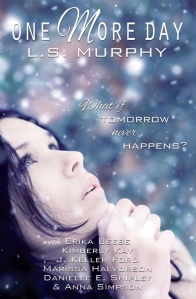The best writing advice
About a month ago, a couple of days after I signed the contract for my three-book deal with Astraea Press, I wrote a hand-written letter to one of my high school teachers. She’s still at the school, though I wouldn’t be surprised if she’d be retiring soon, so I considered myself lucky to be able to reach out to her and thank her for the best writing advice I’ve ever received.
But first, a little backstory.
Like a lot of other writers I’ve met, reading and writing came easily to me from an early age. I’ve been reading for longer than I can remember, and I was told I had a way with words when I was very young. I received awards for writing all throughout elementary school, was praised by my 5th grade and 7th grade language arts teachers for my ability to write dialogue, and won the award for Exceptional Performance in Literature in 8th grade.
But writing came easily to me, which meant I could skate by in all my English classes without even needing to try. And because I didn’t bother to try, I wasn’t included in the Honors English classes that some of my friends were in. Basically, if I tried harder, if I applied myself more, I would have been in those classes. (I learned all of this my senior year after talking to my guidance counselor, who was also my English teacher that year.) But whatever.
My junior year, I was allowed to take an Advanced Writing class. This was separate from English; this was strictly creative writing. The teacher was my sister’s former AP English teacher, and I genuinely liked her. She had us do a lot of fun writing and journaling exercises, and I had fun with it. We read and discussed different styles of writing and practiced writing in those styles, and it was probably one of my favorite classes that year.
But, again, I didn’t really try.
At the end of the semester, one of our final projects was a short story that would ultimately be published in the school literary magazine. I wrote something (I couldn’t even tell you what anymore), submitted it, and got like a B-minus on it. She didn’t mark up my pages like she did on some of my classmates’ work, and the only note I remember seeing was three little words on the very last page:
Know your audience.
Well, sixteen-year-old me was incensed. I threw it away. (That’s probably why I don’t remember what I submitted.) I pitched a hissy fit. My masterpiece, the story I had worked on for hours was better than a B-minus. And I knew my audience. She didn’t know what she was talking about.
Fast-forward *cough* years, and in retrospect, that was the best writing advice anyone had ever given me. And really, up to that point in my life, the only writing advice I’d ever received.
You see, the mechanics of writing came easily to me. Grammar, syntax, punctuation, whatever. Dialogue was easy peasy. Plot? Meh, I could have used some extra work to hone it, but I had the basics down. So those markers that teachers check off before you get to move to the next level? I’d mastered them, and I knew it. And no teacher before her gave me anything less than glowing marks on anything I submitted.
But she was the first teacher to treat me like a writer. Her feedback was the equivalent of the common “It’s not for me” rejection so many writers have received from literary agents and editors. No one had ever rejected my work, though, and that’s why sixteen-year-old me was so angry and infuriated. “How dare she tell me to ‘know my audience!’” I thought she didn’t understand me as a writer, my message, my sheer brilliance.
She wasn’t the one who didn’t understand. I was. And if I’d just swallowed my pride and allowed her to teach me, I would have figured that out a lot earlier than I did.
Aside from being hopelessly amateurish, I realize now whatever I wrote wasn’t suitable for the literary magazine. (I ended up submitting some poetry I’d thrown together.) So no, I didn’t know my audience back then the way I thought I did. I wrote for me—which is always the best thing to do—but in those three little words, she let me know that sometimes, we’re actually writing for other people.
Know your audience.
And write for them.


